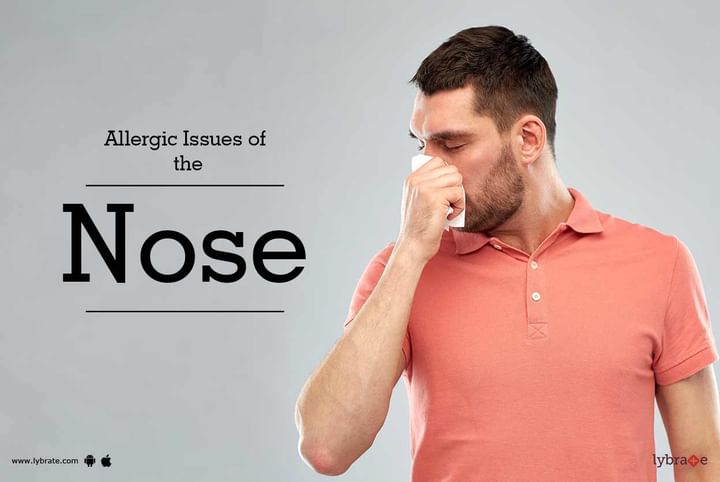Get the App
For Doctors
Login/Sign-up
Last Updated: Jul 29, 2023
BookMark
Report
Allergic Issues of the Nose
Nasal allergies are very common and as a result, not taken seriously by most people. In most cases you patiently withstand the coughing and sneezing, which might last for an entire day and in the process might inadvertently damage your health by choosing to ignore it for the time being.
Here are some of the commonly experienced nasal allergies and what you should do to get relief from them:
- Runny or stuffy nose: The best option is to just avoid allergy triggers. For example, if pollen is your allergen, then avoid going out during the times pollen count when it is reported to be high. Or, if animals make you sneeze, then make sure to have your hands washed and clothes changed after playing with them. Do not over use decongestant sprays at all. If these symptoms persist for more than half a week, then it's time to seek your doctor's advice.
- Uncontrollable Sneezing: Again, the best option is to avoid; but in many cases, it becomes difficult for you to avoid the allergen. In those cases, try antihistamine. If that doesn't work, then you can also go for a nasal steroid spray, but again, make sure to not overuse it.
- Post Nasal Drip: Usually, you unconsciously swallow your mucus. But, if the mucus quantity increases, it becomes thicker and results in post-nasal drip. It isn't much common, but you can practically feel the mucus dripping into your throat from the back of the nose. It can result in a lumpy feeling in the throat and can cause irritation. You can try drinking more fluids and using a nasal spray to reduce the mucus quantity. If that doesn't work, then it's time to seek advice from your doctor.
- Eyes that itch: Watery eyes that itch are annoying companions of nose allergy and though they might not be a serious hazard for the eyes, you cannot ignore them. Try wearing sunglasses when you go out into a reportedly high-pollen-count weather. It might be a better option to forego contact lenses; they can escalate the entire eye-itching problem. If it becomes too itchy, you can place a cold washcloth over your eyes.
Testing an Allergy: Allergy testing is commonly done by by skin prick test, in order to diagnose the allergens. Once, the allergens are diagnosed, immunotherapy can be started, which will help in improving the symptoms of and in many cases, it provides complete cure.



+1.svg)
